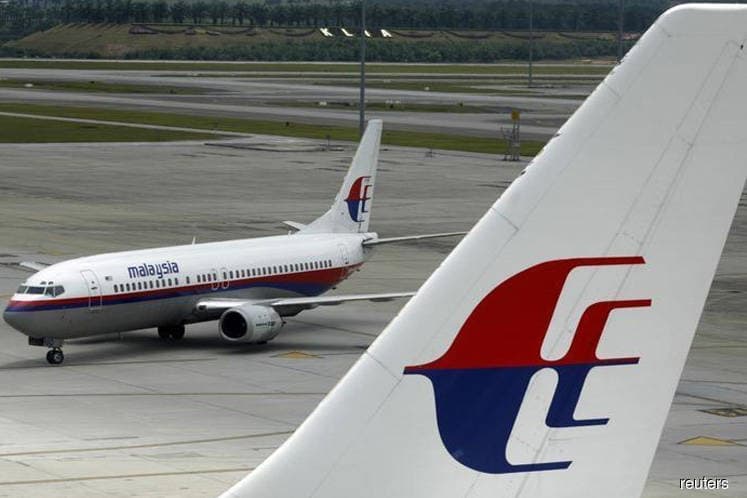
KUALA LUMPUR (Dec 8): Malaysia Airlines Bhd has bucked a regional trend of declining passenger yield as yield in the third quarter of this year (3Q17) came in higher at 22.6 sen compared with 21.4 sen in 2Q17. Its passenger revenue also grew 3.5% year-on-year (y-o-y) in 3Q.
"The third quarter continued to be challenging with overcapacity in the markets we are in. While our peers in the region seem to show trends of declining yields, putting pressure on overall revenue per available seat kilometre (RASK), I am happy to see Malaysia Airlines bucked this trend by showing improvements in both areas," the national carrier's newly-appointed group CEO Captain Izham Ismail said in a statement today.
Malaysia Airlines reported a 2% y-o-y improvement in RASK in 3Q17 on the back of average fare increase.
However, its passenger load factor was down slightly to 77.5% in 3Q17 from 77.8% in 2Q17 amid tough competition as competitors' fares dropped significantly.
"With a concerted focus, and closer oversight from the board of directors, yield in 3Q17 did see an improvement relative to the weaker yields in 1Q and 2Q. This will continue to be a focus area moving forward. Forward bookings in the next quarter remain healthy with better passenger revenue," said Izham.
"We have seen some progress but there is still a long way to go. Moving forward, we will be renewing focus on yield with clearer customer segmentation and improved revenue management practice. Revenue is improving, but we need to step this up to address rising costs from fuel and foreign exchange volatility," he added.
Izham also pointed out that optimising costs will remain the airline's priority. As of Sept 30, 2017, Malaysia Airlines' cost management initiatives have generated an estimated savings of around RM96 million.
Izham also said the airline does acknowledge that its customer experience needs to be improved in certain areas and he himself will personally pay close attention to customer experience.
"Technical issues, severe weather, air traffic control delays and operational constraints led to a 3% y-o-y reduction in on time performance (OTP) to 70% in 3Q17. These issues are being addressed with a particular focus on operational efficiencies in engineering and ground handling.
"Processes need to be simplified for better operational efficiency. The foundations have been put in place and we are confident to see improvements soon," he said.
Izham also said Malaysia Airlines' network expansion is on track, with two new routes introduced in 3Q17, namely Chongqing and Surabaya. Chengdu will follow suit by the first quarter of 2018.
"We are looking forward to the arrival of the six widebody Airbus A330s to facilitate further growth plans. The six widebody aircraft will enable us to significantly improve the customer experience whilst also generating better revenue," he said.
Izham noted that the lease of the six A330-200s as replacement for six B737s that are being returned to lessors, will be an important part in addressing profitable demand.
"The A330-200s are expected to begin arriving from early 2018 and will enable the airline to up-gauge its longer and high demand business routes," he added.
The airline has also commenced work on the upgrading of the lounges in the Kuala Lumpur International Airport (KLIA) in Sepang, with both the regional and domestic lounges completed in the third quarter. The satellite lounge is expected to be reopened in January.
On its digital transformation, Malaysia Airlines said its innovation lab will be fully operational in 4Q17 to deliver innovative solutions to enhance customer experience, which include real-time flight status updates and prepaid excess baggage.
The airline also said the equalisation of passenger service charge at KLIA and klia2 effective Jan 1 will create a level playing field for airlines operating out of Malaysian airports.